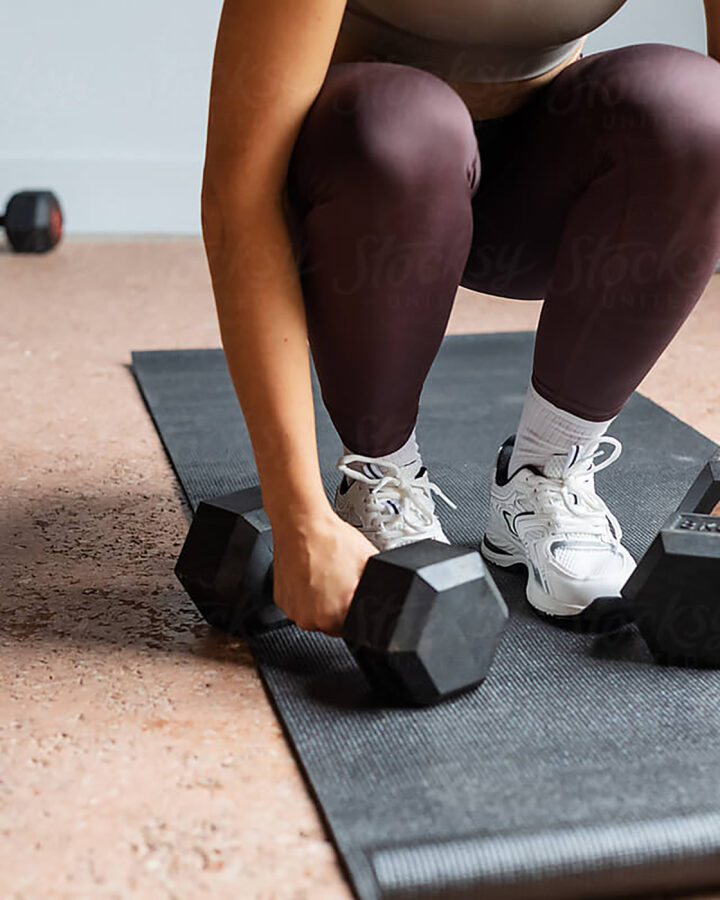How to Strength Train for Brain Health: Lifting Weights Protects Memory and Prevents Decline

Twice-weekly resistance workouts can sharpen memory, preserve brain structure, and slow cognitive decline.
If you need another reason to hit the weights, here it is.
A study published in GeroScience found that twice-weekly resistance training over six months improved verbal memory performance and preserved key brain structures that typically shrink during cognitive decline. Even more promising? The people in this study were adults over 55 already showing signs of mild cognitive impairment.
This research adds growing weight (literally and figuratively) to the case for resistance training as a [lon-jev-i-tee]nounLiving a long life; influenced by genetics, environment, and lifestyle.Learn More tool that goes far beyond muscle.
How the Brain Health Study Was Designed
Researchers from the Universidade Estadual de Campinas in Brazil recruited 44 adults aged 55 and older, all with mild cognitive impairment (a risk factor for dementia). Half joined a [strength tray-ning]nounResistance-based exercise to build muscle and support healthy aging.Learn More group and worked out twice a week, performing 10 exercises targeting major muscle groups at 80% of their max effort. The other half, the control group, maintained their usual activity levels.
Both groups underwent comprehensive memory testing and MRI scans before and after the six-month study.
The Results: Strength Training Boosts Memory and Preserves Brain Volume
The training group showed notable memory improvements, particularly in verbal recall. But the brain imaging revealed the real story:
- Brain volume: While the control group lost volume in key brain areas (like the hippocampus, which is crucial for memory, and the precuneus, linked to attention and self-awareness), the training group maintained volume in these regions.
- Brain processing: The white matter integrity of the training group also improved. This means that the brain’s communication pathways, essential for processing and memory, stayed stronger and more organized.
- Physical strength: People who exercised also increased their physical strength across all measured exercises.
In short, strength training slowed physical decline and helped protect the brain from decline.
Why Strength Training Matters for Cognitive Longevity
This study is a big deal because white matter changes often appear before brain shrinkage in neurodegenerative diseases. If strength training can preserve white matter in people already showing signs of decline, it might be a way to intervene earlier in the aging brain.
Even better? Resistance training is low-cost, accessible, and adaptable. You don’t need fancy gym equipment to benefit: bodyweight movements, resistance bands, and basic dumbbells can do the job, especially when done with intention and consistency. The study had some limitations. People chose their own groups (which may introduce bias). Also, it’s possible that the social connection of working out together played a role in the cognitive benefits.
Still, the findings are strong: moving your body with resistance may help your brain stay sharper, longer, especially if you’re in your 50s, 60s, or beyond.
A Strength Training Program for Brain Health: Here’s What Works
The people in this study followed a structured, supervised resistance training program designed to work major muscle groups. Here’s what that looked like:
- Duration: 24 weeks
- Frequency: 2 sessions per week
- Exercises: 10 total movements targeting all major muscle groups
- Volume: 3 sets of 10 repetitions per exercise
- Intensity: 80% of one-rep max (i.e., moderately heavy weight, enough to challenge, but still safe with proper form)
The study suggests that progressive resistance training at moderate-to-high intensity is key. Specifically:
- Full-body strength work: Focus on compound movements that engage multiple muscle groups (e.g., squats, lunges, chest presses, rows, and core work).
- [pruh-gres-iv oh-ver-lohd]nounGradually increasing workout intensity to build strength and endurance.Learn More: Gradually increasing weight or resistance over time improves both muscle strength and brain benefits.
- Consistency: Strength training just twice a week for six months was enough to show measurable improvements in memory and brain structure.
80% Max Effort: Aim for weights that feel like a 7–8 out of 10 effort. The cognitive benefits in this study weren’t from light stretching or casual movement. Participants worked at 80% of their max capacity, a challenging but doable effort with proper support.
Aim for twice a week: For anyone over 55, and especially those at risk of cognitive decline, strength training isn’t optional. It’s foundational. Aim for two full-body resistance workouts per week. Use moderate-to-heavy resistance. Prioritize compound movements and progressive challenge. Consider working with a trainer, especially if you’re new or managing health conditions.
Focus on full-body movement: Engaging large muscle groups, especially in the lower body, may amplify benefits by increasing [bluhd floh]nounThe movement of blood through the circulatory system, delivering oxygen and nutrients to organs and tissues to support energy, healing, and overall health.Learn More, activating the nervous system, and supporting white matter integrity.
If you’re not lifting yet, now’s a good time to start. Because it’s never too late to build strength, or protect what matters most. If you still have questions about how to get started, check out our Ultimate Guide to Building Muscle Safely.
Read This Next
The information provided in this article is for educational and informational purposes only and is not intended as health, medical, or financial advice. Do not use this information to diagnose or treat any health condition. Always consult a qualified healthcare provider regarding any questions you may have about a medical condition or health objectives. Read our disclaimers.

